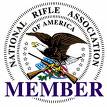-
FREE MEMBER
NO Posting or PM's Allowed

Nickel Plated Brass Question
I have bought new Winchester nickel plated brass cases for loading for my Savage 308 bolt gun. I'll continue using regular brass cases for my M1a.
Aside from straight walled 38 cases I have not reloaded nickel plated brass.
Is there any special considerations for reloading the .308 nickel plated brass - I'll size, trim, etc prior to loading.
Thanks.
Dave
Information
 |
Warning: This is a relatively older thread
This discussion is older than 360 days. Some information contained in it may no longer be current. |
|
-
03-01-2009 03:41 PM
# ADS
Friends and Sponsors

-
FREE MEMBER
NO Posting or PM's Allowed

-
-
FREE MEMBER
NO Posting or PM's Allowed

William T. Watts

Originally Posted by
Dave B from western NY

I have bought new Winchester nickel plated brass cases for loading for my Savage 308 bolt gun. I'll continue using regular brass cases for my M1a.
Aside from straight walled 38 cases I have not reloaded nickel plated brass.
Is there any special considerations for reloading the .308 nickel plated brass - I'll size, trim, etc prior to loading.
Thanks.
Dave
Nickle will eventually scratch your resizing die, I no longer use nickle cases for any reason because of the damage they can and will do. Be especially careful with cases that have started to flake, those flakes may embed in your die!! The cases look good, that's about the only thing good I can say about them. Yes, I have damaged/ruined resizing dies before!! William
-
FREE MEMBER
NO Posting or PM's Allowed

The nickel wil also dull the heck out of you trimmer cutter.
-
FREE MEMBER
NO Posting or PM's Allowed

Plated brass
Many reloaders do not use plated brass due to the plating being harder than the brass. If the plating flakes, when seating a bullet, the plating can scratch your bore. This usually happens after many reloads. You can check out this link on Varmint Al's website. Very informative. After reading this you can decide yourself on if you want to continue to use it.
Varmint Al's Handloading/Reloading Page
-
FREE MEMBER
NO Posting or PM's Allowed

I agree with the others: keep them really clean, recycle them when they start to flake, beware of case neck cracks. Ric
-
FREE MEMBER
NO Posting or PM's Allowed

Method & Purpose of annealing Brass,
Here's a good explanation and method of how to do it.
http://www.lasc.us/CartridgeCaseAnnealing.htm
you can anneal without a lot of fancy equip,although I admire this set up.
RayP.
-
FREE MEMBER
NO Posting or PM's Allowed

I've been loading .243's (prairie dog bolt action rifles) and a .308 target rifle (bolt action pre 64 winny action with 1 in 10 twist SS Krieger barrel).
I have had NO problems so far. I haven't had any rounds "flaking". all my nickel brass is Remington Peters brand and is headstamped RP.
On some of the .243 rounds (4 reloads) the nickel is getting "thin" in the center of the case. After 4 loads I scrap ALL brass.
I originally went to the nickel brass for two reasons. 1) it was easier to find in the grass in MN, and 2) it requires less force on the press to reform as the nickel acts like a lube in the die. You still NEED to use case lube though.
HTH
Bob
-
FREE MEMBER
NO Posting or PM's Allowed

Size the least amount possible for function.
The problem arises because the nickel and brass have different stretch/compress qualities.
Brass is more mailable than nickel. As the case expands, it creates tiny stretch lines in the nickle. Brass however expands evenly under the plating.
Sizing returns the brass much easier than the nickel. Over several cycles, the lines become cracks and the nickel to brass bond is broken which causes the flaking. The cracks in the nickel also leave thinner lines in the case metal which speeds the problem of cracked, and split brass.
The only advantage to plated brass is to retard the effects of tarnish(oxidation) of the cases. It originated as an attempt to cut down on the reaction of leather shell holders on the brass, which turned green and grew oxidation scale from the chemicals used to tan and finish the leather.















 Register To Reply
Register To Reply








